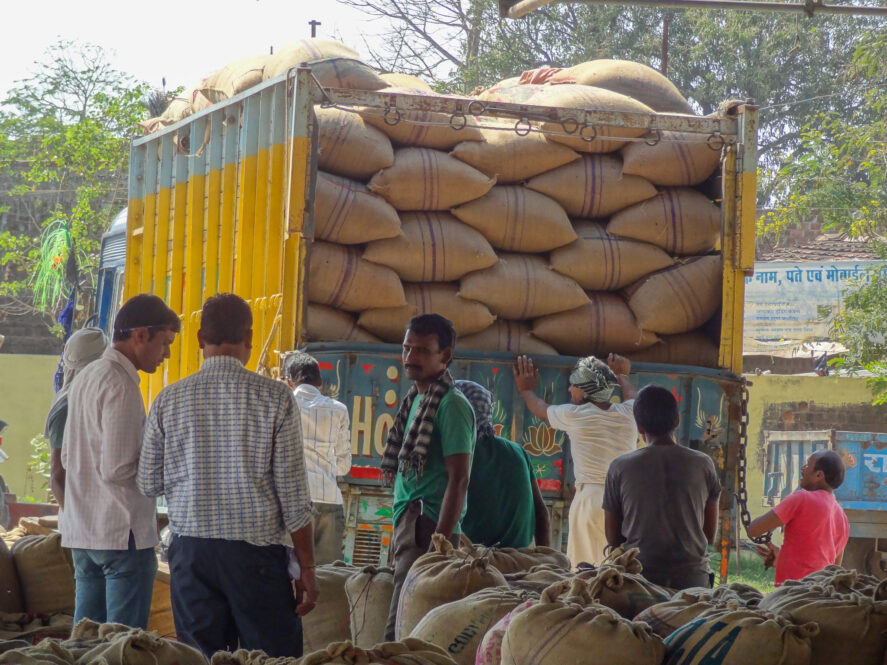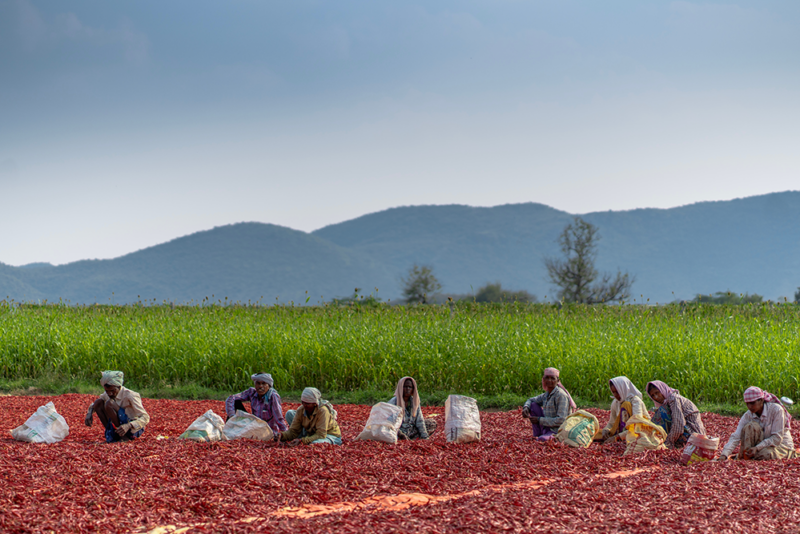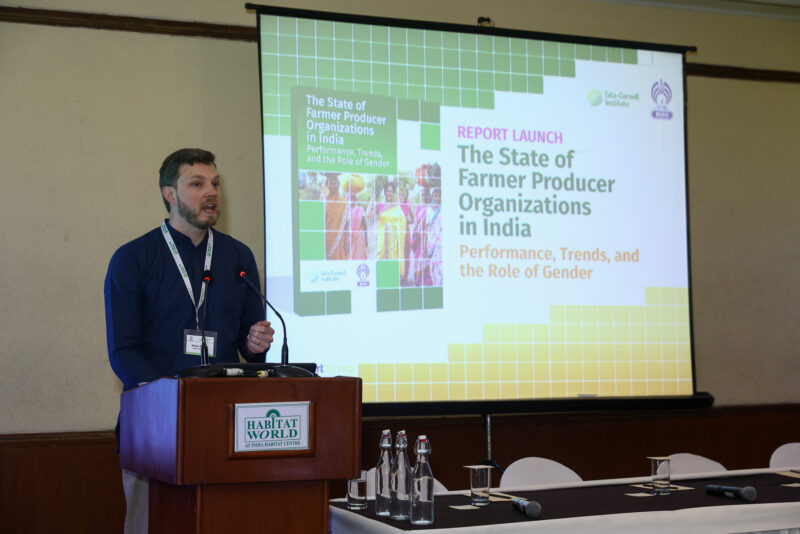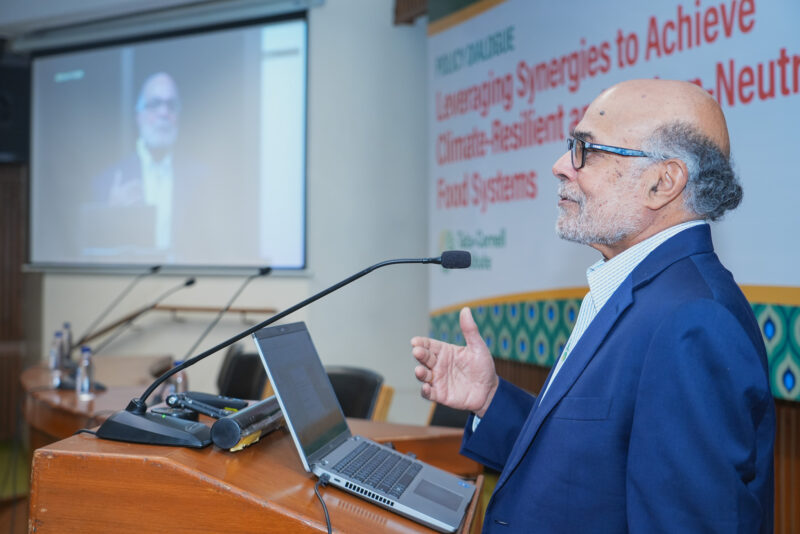New Project Promotes Diverse Food Value Chains in India

In a food system, growing crops isn’t the end of the story; it’s not even the beginning. Before crops can be grown, seeds and other inputs must be purchased. After the harvest, crops may be processed or refined before moving to wholesale markets. Finally, food arrives in restaurants and grocery stores, where it’s purchased and eaten by consumers. Like arteries in the human body, value chains bring food from the farmgate to consumer plates, playing a crucial role in determining what is grown and eaten.
A new project at the Tata-Cornell Institute for Agriculture and Nutrition (TCI) aims to bolster Indian food value chains in support of the diversification of the country’s food system. TCI researchers say that diversification is key to overcoming India’s stubbornly high malnutrition rates and making its food system resilient in the face of climate change, but value chains for nonstaple crops need strengthening. Food value chains encompass the full range of activities and processes that bring food from the farm to the consumer plate. Value is added and maintained at every step, including production, processing, distribution, marketing and consumption.
“As food moves from farm to fork, there are numerous opportunities to increase efficiency, reduce waste and generate economic opportunities for India’s smallholder farmers,” TCI Director Prabhu Pingali said. “This exciting new project will identify those opportunities and provide policymakers with information to build and bolster value chains for nutritious, climate-smart crops.”
As part of the “Promoting Value Chains for Climate Resilience and Nutritious Diets” project, TCI researchers will map and analyze the value chains for key nonstaple food groups—coarse grains, horticultural produce, pulses and oilseeds. In particular, they will focus on soybeans, eggplant, oranges, black gram, pearl millet and maize. Through their analysis, they will identify challenges and inefficiencies along the value chains and recommend options for addressing them.
“Developing strong, efficient value chains for diverse crops is an integral step in building a climate-friendly food system and making nutritious foods more accessible, available and affordable,” Pingali said.
Researchers will also consult with key stakeholders in the relevant value chains, including policymakers, scientists and civil society organizations. These consultations will reveal key areas of focus and confirm the validity of proposed interventions.
The project is supported by a 5 million Danish kroner grant from the Novo Nordisk Foundation.
“The Novo Nordisk Foundation is looking to India to partner on the sustainable food system agenda with a specific focus on climate and nutrition,” Jakob Ørberg, a senior scientific lead at the Novo Nordisk Foundation, said. “TCI’s repository of work on agriculture value chains and the work supported under this project is an important and actionable knowledge base for this agenda.”
India’s food system faces mounting challenges, namely feeding a growing population and curbing high malnutrition rates. Current policies incentivize rice and wheat production to ensure that people don’t go hungry, but the latest surveys show that 32% of children under the age of 5 are underweight, 57% of women are anemic and there is a worrying trend of rising obesity among both adults and children. The growing risk of climate change adds to the stress on the food system, as rising temperatures and more frequent extreme weather events threaten crop yields.
TCI researchers point to crop diversification as a solution for those challenges. Reducing the amount of rice and wheat grown while increasing production of micronutrient and protein-rich crops, like vegetables and beans, could reduce malnutrition. Producing crops that are well-suited to harsh climates, such as coarse grains and pulses, could also make India’s food system more resilient against climate change while lowering greenhouse gas emissions.
Diversifying India’s agricultural system requires increasing the yields of such nonstaple crops. Establishing strong value chains for those crops is critical for increasing yields, according to researchers. Value chains for rice and wheat are robust and extensive because India’s agricultural policies incentivize their production. By comparison, value chains for coarse grains, horticultural produce, pulses and oilseeds are not as well-developed. TCI’s research project aims to help policymakers rectify this situation.
“Properly established value chains help connect farmers with markets, allow for price discovery, provide critical infrastructure and ensure economic incentives,” Pingali said. “Developing strong, efficient value chains for diverse crops is an integral step in building a climate-friendly food system and making nutritious foods more accessible, available and affordable.”
A correction was made on Oct. 2, 2025: The crops being studied as part of this project were changed after this article was published. Instead of assessing the value chains for millets, tomatoes, pulses and soybeans, the project is focusing on soybeans, eggplant, oranges, black gram, pearl millet and maize.
Featured image: Men load a truck with sacks of pulses at a market in Bihar. (Photo by Mathew Abraham/TCI)





